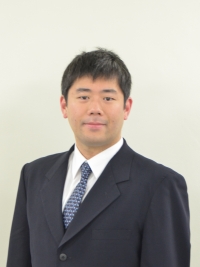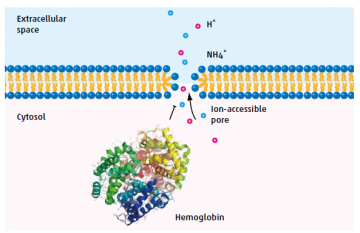Transistor-based sensing system finds ion leakage in cells injured by nanomaterials

Tatsuro Goda,
Assistant Professor of Bioelectronics at TMDU
Cytoplasmic delivery of nanomaterials with high efficiency and low cytotoxicity is of interest for nanomedicine. Studies on viruses have identified a series of oligopeptides suitable for efficient cytoplasmic invasion. Some nanomaterials can enter cells without endocytosis. In earlier research, we found passive diffusion of amphipathic polymers that mimic phospholipids, across the membranes of live cells (Biomaterials doi: 10.1016/j.biomaterials.2009.11.095). However, improvement of patiotemporal resolution in analytical methods is necessary to elucidate the underlying mechanisms of this phenomenon.
Prompted by this, we developed an active pH-sensing system based on the fact that the proton is the smallest molecule, but it can only permeate through damaged cell membranes. A silicon-based transistor for label-free pH-sensing is amenable to ownsizing and integration into a small chip, enabling high-throughput single cell analysis. To evaluate ion leakage across the plasma membranes, we injected ammonium chloride into a solution of cells that had been cultured onto the transistor. When we exposed the cells to nanomaterials, we observed leakages of H+ and NH4+ but no leakage of hemoglobin. (Acta Biomater., doi: 10.1016/j.actbio.2016.12.018). We understood that this was possible because the ions are so much smaller than hemoglobin (<0.33 nm vs >3.1 nm). Experiments over an extended period distinguished the ion leakage induced by cell apoptosis from that caused by membrane lysis by invading compounds. Comparison with conventional cytotoxicity assays classified a form of cell death. Our pH-sensing method is fast and sensitive, and is useful for understanding interactions between cells and anomaterials.
I graduated from Kyoto University in 2003 and received my PhD (summa cum laude) in Material Engineering from the University of Tokyo in 2008. After a year on a JSPS postdoctoral fellowship in Tokyo, I began researching biosensors and bioelectronics at the National Institute of Materials Sciences in Tsukuba. In 2010 I became Assistant Professor at the Institute of Biomaterials and Bioengineering at TMDU. Since then, I have also been a guest researcher at Nanyang Technological University in Singapore and at Karolinska Institute in Stockholm.


